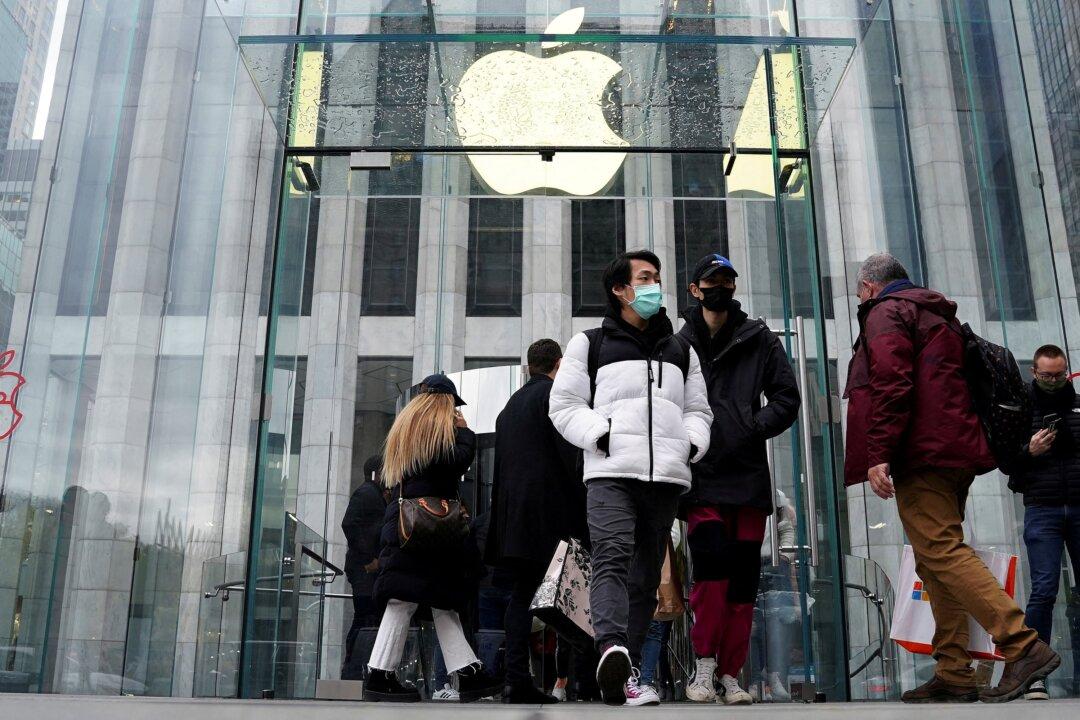Apple announced on Dec. 23 that it has temporarily closed at least eight retail stores in the United States and Canada since Dec. 22, as cases of the Omicron variant surged among customers and employees, according to an article from Bloomberg.
Apple closed stores in The Gardens Mall in Palm Beach, Dadeland in Miami, Lenox Square in Atlanta, Cumberland Mall in Atlanta, Highland Village in Houston, Summit Mall in Ohio, Pheasant Lane in New Hampshire, and Sainte-Catherine in Montreal.





